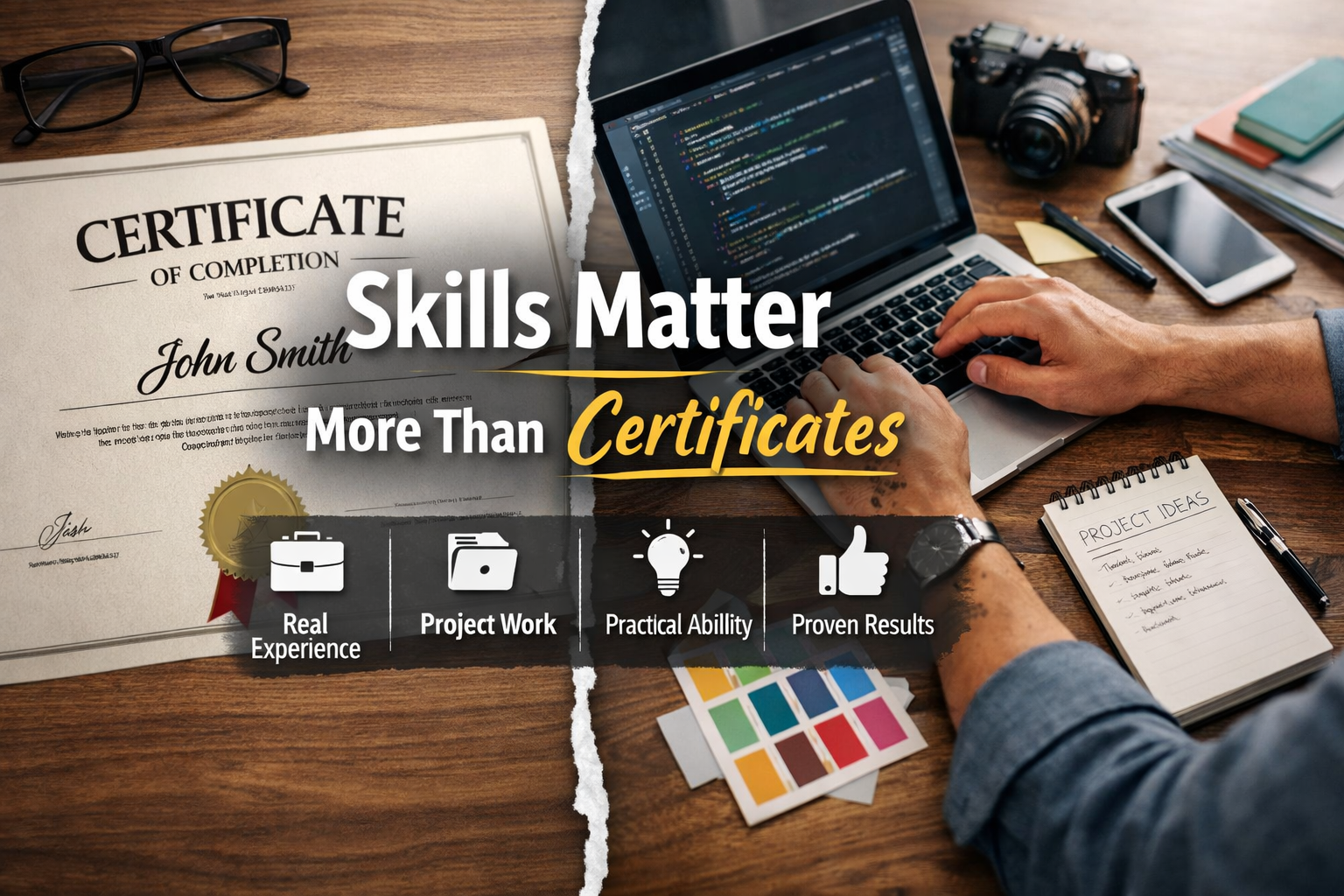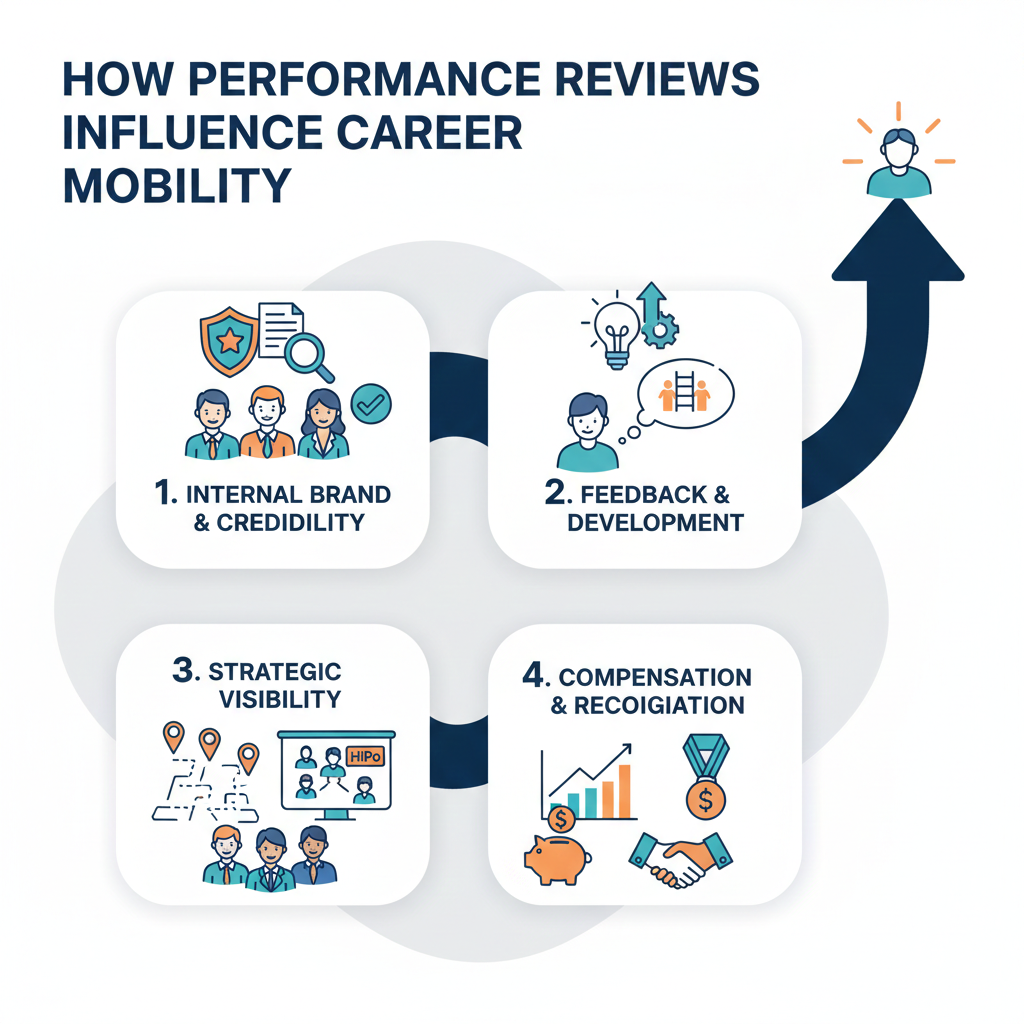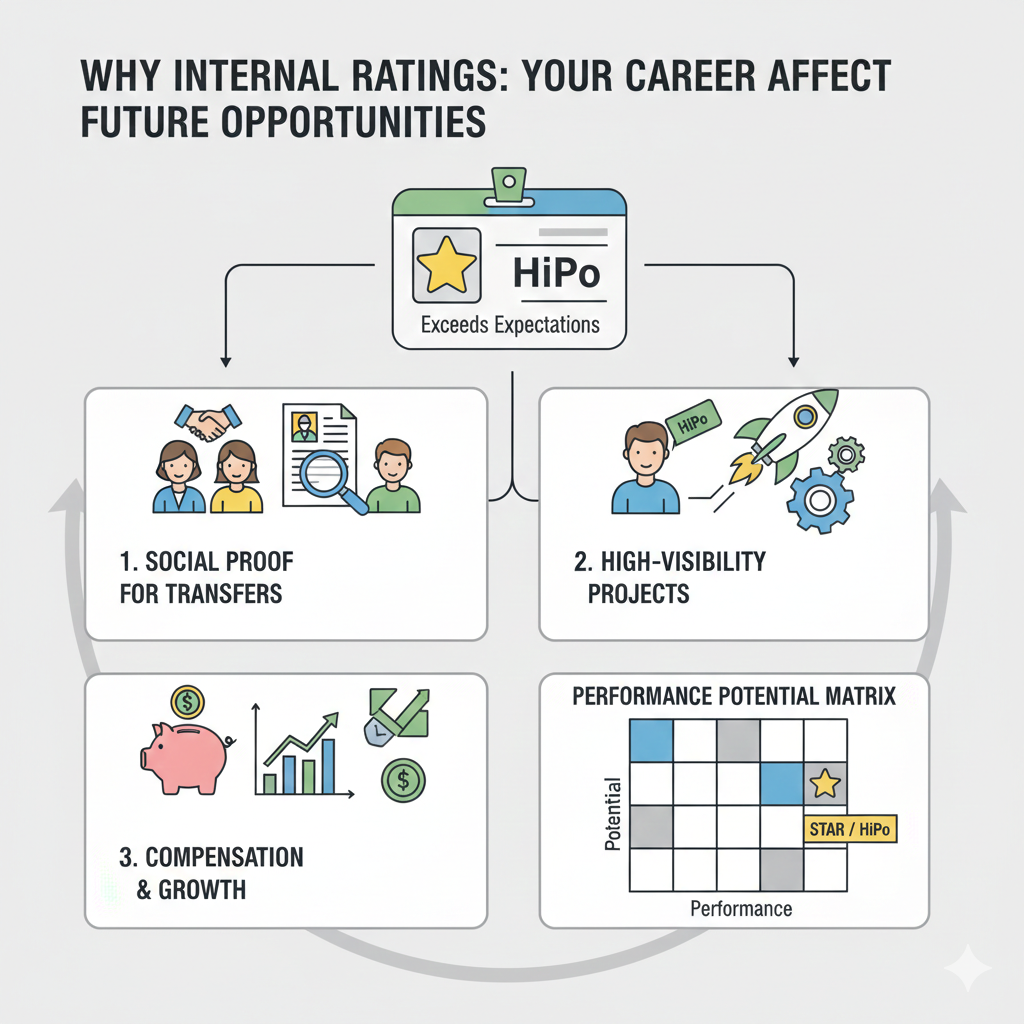Introduction
At some point in life, we all reach a stage where we feel confused about what to choose to build a successful career.
We have brought you a wonderful article to help clear that confusion.
This article includes important steps to choose the right career path after graduation — such as identifying your skills, exploring different career options, and much more that you will discover as you read ahead.
Read the summary of this article here.
1. Identify Your Skills for Your Career
Identifying your skills means understanding your strengths, talents, and skills so that you can clearly choose a direction for your career. First, see your post achievements, hobbies, and experience, and decide which task you can do perfectly. Then think about which industry you have an interest in working in. Do market research so that you can understand which skills are in demand. When you are aligning your passion with market demand, then you can choose your niche clearly which is best for your long-term growth.
Hard skills vs soft skills
| Basis | Hard Skills | Soft Skills |
| Definition | These are technical, measurable skills, which you learn by through training, courses, or from direct work experience. | These are personal traits and interpersonal abilities. It defines by your style of work and interaction with someone. |
| Examples | Coding, Graphic Design, Data Analysis, SEO, Accounting, Foreign Languages. | Communication, Problem-Solving, Time Management, Teamwork, Leadership, Emotional Intelligence. |
| Importance | Hard skills are directly job-related and are clearly mentioned in job descriptions. Recruiters can verify them through tests, assignments, or certifications. | Soft skills help you adapt, collaborate, and work efficiently. They are in demand in every industry, whether the role is technical or non-technical. |
Both the hard skills and the soft skills are equally important for our career growth.
2. Explore Different Career Options
After graduation, the main step is to understand right career options for yourself. Every student has a different background and interest, so do not follow any career path blindly.
First, research industries related to your degree like if you are from a commerce background then search for finance marketing or HR fields and if you studied from a science background then explore in healthcare, data science, or technology sectors.
In today’s digital era, emerging fields such as digital marketing, data analysis, UX design, content writing, social media management, artificial intelligence, and cyber security are also growing fast. These fields provide flexibility, creative freedom, and growth.
If you do not like a traditional 9 to 5 job then you can try for some non-traditional career paths such as freelancing, entrepreneurship, remote work, or content creation. These options are perfect for those who want to work on their ideas and want to make their passion a profession.
Exploration and experimentation are the most important at this stage. To explore the best career, you need to try different options.
3. Learn from Professionals for Your Career
Learning from managers around you is the best way to develop leadership skills. Learn how your seniors handle pressure, conduct meetings, and solve conflicts. These are real-life lessons that you cannot find in any book.
Seek mentorship
Take guidance from experienced managers. Ask them how they handle challenges and develop leadership skills in their career. Their experience is very valuable for your growth.
Ask for feedback
Do not be ashamed of taking feedback. Whether the feedback is positive or constructive, accept and implement. This habit helps you to improve on a professional and personal level.
4. Gain Experience Before Deciding Your Career
Gaining some practical experience before pursuing a career is very important because you will get to know about your actual interests through real-world exposure. Decisions can be wrong if taken based on theory or degree that’s why try to participate in internship, freelancing projects, or volunteering activities.
You get a chance to understand the professional environment through an internship such as handling deadlines, working in teamwork, and which type of work will suits you. If you try freelancing then you can make your skills and portfolio strong by working with different clients. Volunteering is also a good option where you can explore your interests without any pressure.
If you are not ready for a full-time job then you can also join part-time jobs or short-term projects. Through this, you will get experience in the industry and help you to understand the work environment.
All these experiences provide you with clarity. When you try multiple work then you get to know about your passion in detail. Practical exposure solves confusion and helps you to understand your strengths and weaknesses.
5. Set Clear Career Goals
In today’s time, many young professionals start their careers without clear goals. They just know that they want a job but they do not know the direction, what to achieve, or how to grow.
Setting career goals is important because clarity gives direction. When you know in which field you have to go, at what position you want to reach, and what efforts you need then only you can shape your career confidently.
You need to divide your goals into two parts one short-term and another long-term;
- Short-term goals
Short-term goals are the goals that can be achieved in a year such as learning a specific skill, doing an internship, or completing a certification. - Long-term goals
Long-term goals are the goals that can be completed within 5 to 10 years such as reaching a leadership position, starting a business, or creating a strong personal brand.
If you do not have this clarity then you can feel confused and dissatisfied easily. That’s why set your goals in starting. Understand your interests and strengths and create a career road map on the basis of that. When you have a clear goal then your decisions will be smarter and your career growth will also be consistent.
6. Upskill and Prepare for Your Chosen Path
In today’s time, technology boost the speed of learning. AI tools, ChatGPT, Grammerly, and Canva like tools help to improve content, generate creative ideas, and help in understanding concept easily. Upskilling has very easy with technology.
AI tools, learning apps, and skill-building platforms
In today’s time, technology can boost your learning speed.
- AI tools
With the help of ChatGPT, Grammarly, and the Canva tool, we can improve writing, generate creative ideas, and understand concepts easily. - Learning app
Duolingo (language learning), Khan Academy (academic concepts), and Blinkist (book summaries) provide short, easy, and interactive learning. - Skill-building platform
On Coursera, Udemy, LinkedIn Learning, and Skillshare platforms, we can learn directly from experts, at our own pace, anytime and anywhere.
By using tech tools, you can make your learning process personalized and faster, which will help you prepare for your dream job more quickly.
7. Match Career with Lifestyle Goals
Nowadays young professionals just chase salary. When we start our career then we think that more money means more success. But reality is that learning and growth are more important than money.
If you choose a job only based on salary then maybe you will stay happy in the short term, but face burnout and dissatisfaction in the long term. When your focus is only on earning then you ignore your skill building and self-development.
You should focus on learning and gaining experience in the early years of your career. If you have strong skills and experience then you can earn more money easily, but if you switch jobs just for a salary then you will not get satisfaction in the long term.
That’s why give priority to learning in your early career years.
The Challenges Fresher Face in Landing Jobs.
- Too many job portals but no clear guidance
In today’s time, there are many job portals, but the problem is that they get confused about which platform is best for them. They can lose their focus by applying everywhere and there is no clear strategy.
Tip – You should use platforms that are fresher-friendly, such as Best Job Tool.
- Rejection due to no experience
The biggest challenge is that companies demand experience, but freshers only have academic knowledge. Because of this, the resume did not get shortlisted and pressure had to face rejection many times.
Tip – You can do a project like an internship to gain experience, either paid or unpaid.
- Poorly optimized resume
Freshers mostly make a generic resume, which is not ATS Applicant Tracking System friendly. The result of this resume is that it did not reach the recruiter. Chances of getting shortlisted get low because of no proper keywords and no formatting.
Pro Tip – Read this article to optimize your resume and make it professional as well as impressive.
- Limited networking opportunity
Networking is a strong tool in a job search, but freshers have a less professional network. They neither have contacts in the industry nor do they know about platforms like LinkedIn.
Tip – To build a network, you can use a platform like LinkedIn.
- Lack of Interview preparation
Many freshers learn technical skills, but cracking an interview is another skill. They got stuck in the interview round because of their communication skills, confidence, and problem-solving approach. It is difficult for them to handle this without mock interviews and practice.
Tip -Read this article to know how you can crack an interview.
Conclusion
Choosing the right career path after graduation is not something that happens overnight — it requires research, self-awareness, and patience. You need to explore different fields, understand your interests, and learn what truly motivates you. The more you research and experience, the clearer your direction becomes. Self-awareness helps you align your career with your strengths and values, while patience ensures you make a thoughtful, long-term decision instead of rushing into something temporary.
This article will help you by guiding you step-by-step through the process of career decision-making. From understanding yourself to exploring opportunities and gaining real-world experience, it gives you a clear roadmap to choose a career that not only matches your skills but also fits your lifestyle and personal goals — helping you build a successful and fulfilling future.







Leave a Reply